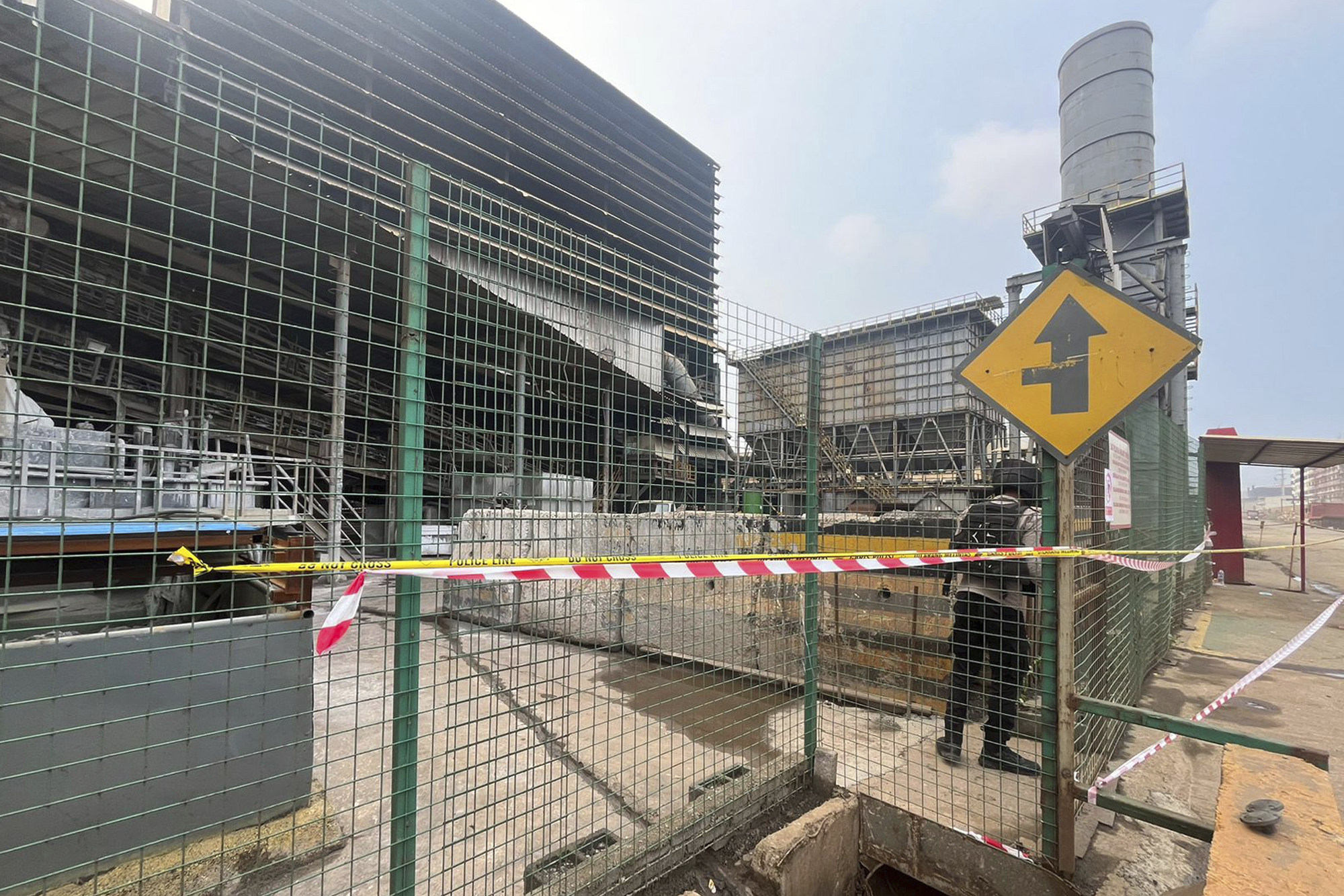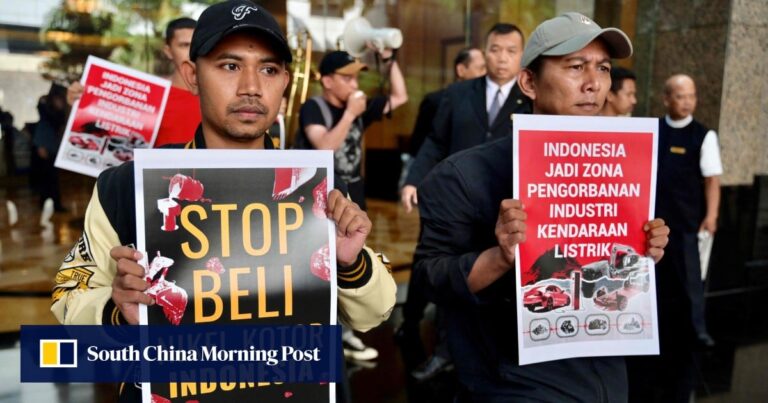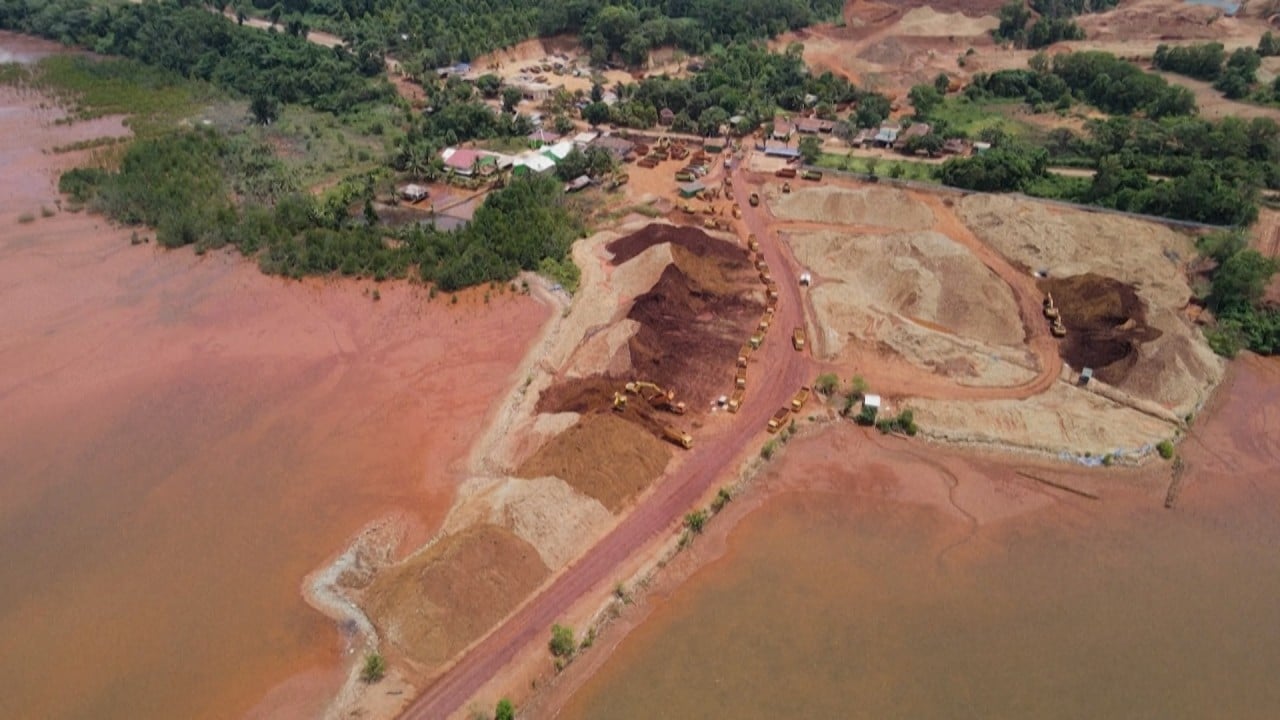“However, the cancellation serves as a wake-up call to address underlying issues in the investment climate, particularly in the sustainability aspect of nickel raw materials,” Nizhar said.
“It also prompts us to review the overall governance of our downstream industries, namely improving the regulatory framework, making it easier to do business and providing more attractive incentives to international companies.”
By addressing these challenges, Indonesia could attract a wider range of global investors, he said.
The project, called Sonic Bay, aimed to refine nickel and cobalt from the Weda Bay nickel mine on Halmahera Island in Indonesia’s eastern North Maluku province. Eramet holds a minority stake in the Weda Bay mine.
The project’s cancellation also dealt a blow to the country’s efforts to expand investment beyond China in the nickel industry, where Chinese companies have built more than 90% of Indonesia’s nickel smelters.
“This is a major blow to Indonesia’s ambition to develop its nickel industry and diversify it beyond Chinese investment… [Indonesia] “Japan will continue to rely on Chinese investment and the Chinese market to develop its nickel industry,” said Siwage Dharma Negara, a senior research fellow at the Singapore-based ISEAS-Yusof Ishak Institute.
BASF said it would not proceed with the nickel-cobalt refining project “after a thorough assessment” and that since the project began, “the global nickel market has changed significantly.” The company made no mention of indigenous people in its June 24 statement.
British indigenous rights group Survival International said Weda Bay’s operations were destroying rainforest home to the uncontacted Hongana Manyawa tribe, who avoid interaction with outsiders.
Survival International said its supporters had sent BASF and Eramet more than 20,000 emails protesting the project and had repeatedly lobbied BASF and the German authorities.
In November, a video showing a Hongana Manyawa family going to a mining camp to beg for food after their rainforest was allegedly destroyed went viral in Indonesia.
Muhammad Habib Abiyan Dzakwan, a researcher at the Jakarta-based Center for Strategic and International Studies, said the project’s cancellation underscored the need for Indonesia to ensure higher environmental, social and governance (ESG) standards if it hopes to attract investment from industrialized countries.
“ESG standards have now become an essential prerequisite for companies in industrialized countries when purchasing critical raw materials, including critical minerals,” he said.
Poor ESG practices will reduce Indonesia’s competitiveness in the eyes of foreign investors, especially those from industrialized countries, Habib said, adding that investors would look to alternative suppliers such as Australia and Canada.
“If you want to enter their markets (those of industrialized countries) or participate in their supply chain, higher ESG standards must be applied,” he said.
“[Otherwise] “They will move away from investments in Indonesia, as evidenced by BASF’s recent cancellation of its investment in the country’s nickel sector.”
“The Tesla affair and the letter from those who [US] “The senators should have been a crucial lesson for us from the beginning,” Habib said.
The Indonesian government has been trying for years, unsuccessfully, to attract Tesla to invest in its electric vehicle sector.
Last October, three U.S. senators warned President Joe Biden’s administration against negotiating a trade deal on critical minerals with Indonesia, expressing concerns about its labor, environmental, safety and human rights standards.
ISEAS-Yusof Ishak Institute representative warned that falling nickel prices could deter miners from adopting good ESG practices.
“Lower prices reduce mining companies’ revenues and profitability. As a result, companies may prioritise immediate financial survival and profitability over long-term investments in ESG factors,” he said.
Indonesia has the world’s largest nickel reserves, estimated at 21 million tonnes, or about 22% of global reserves, according to the US Geological Survey.
The Southeast Asian nation hopes to leverage its vast nickel stockpile and production to become a major player in the global electric vehicle supply chain.

Indonesia’s nickel industry has also been heavily criticized for lax safety standards that have led to explosions and fires at smelters killing dozens of workers in recent years.
In Konawe regency in southeast Sulawesi, where many nickel smelters are based, environmental activist Sulkarnain told This Week In Asia that his hometown now suffers from air and water pollution, with water wells drying up and smelters failing to implement proper waste disposal processes.
As of May, there were 367 nickel mining licenses spread mainly across Southeast Sulawesi, Central Sulawesi and North Maluku, according to the World Resources Institute (WRI) Indonesia, an independent research organization.
“The large number of participating industries poses significant challenges in ensuring the implementation of good mining practices,” said Egi Suarga, climate lead at WRI Indonesia.
Negara attributed the environmental damage and fatal accidents to the industry’s lack of compliance and lax enforcement of rules and regulations by authorities.
“The government must improve the regulatory framework and legal protection of the sector, improve infrastructure and promote ESG standards,” he said.
Nizhar, from the Ministry of National Development Planning, said several key efforts have been undertaken, including stricter enforcement of environmental regulations for mining activities.
These measures include mandatory environmental impact assessments for new projects and periodic environmental audits for existing operations.
“This includes putting in place robust monitoring and reporting mechanisms to track performance and implementing regular reporting on ESG measures and third-party audits where necessary,” he said.



